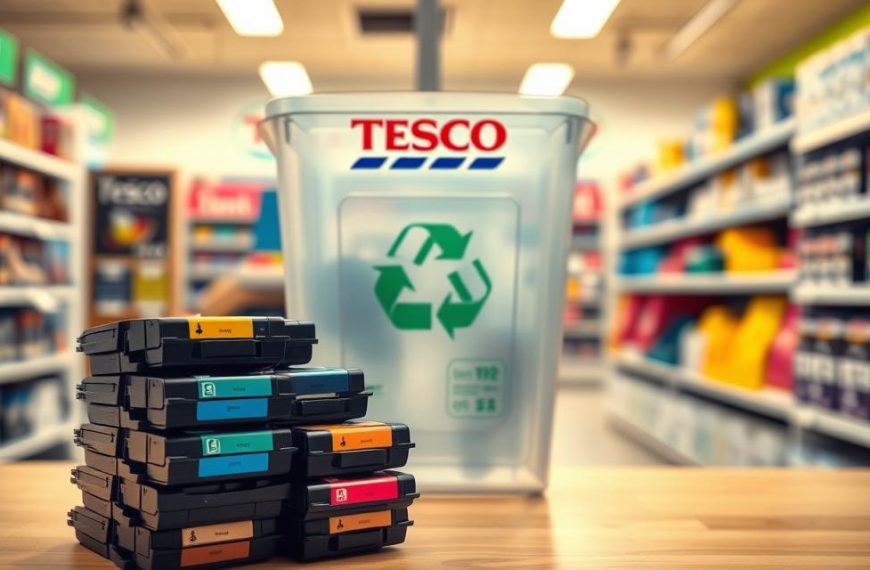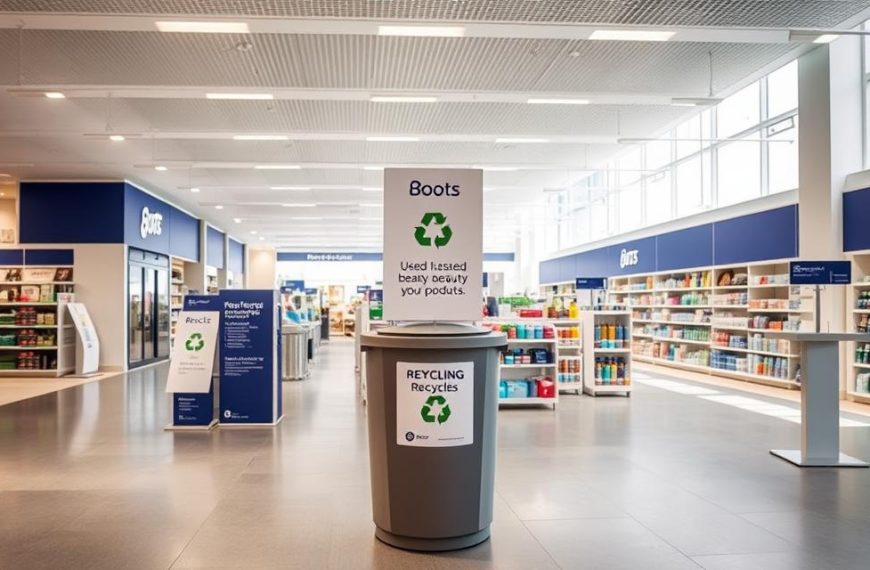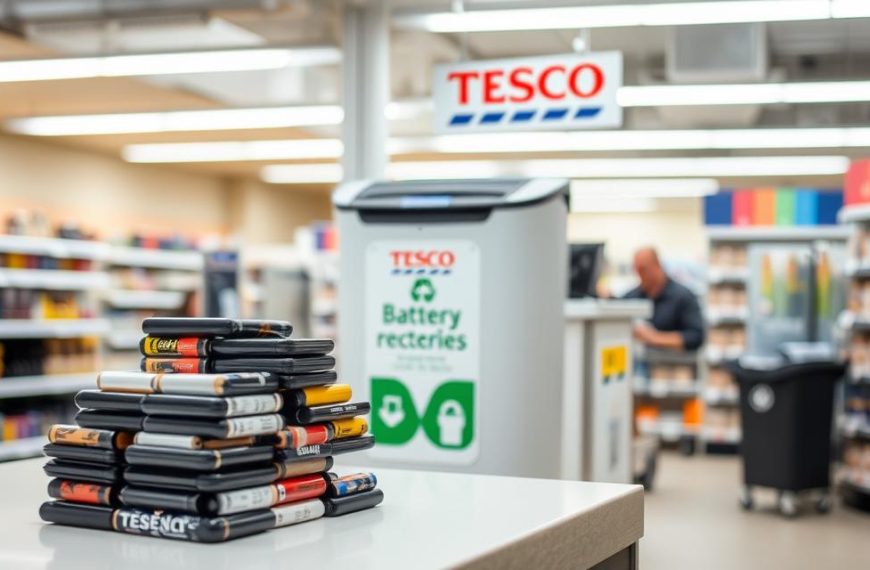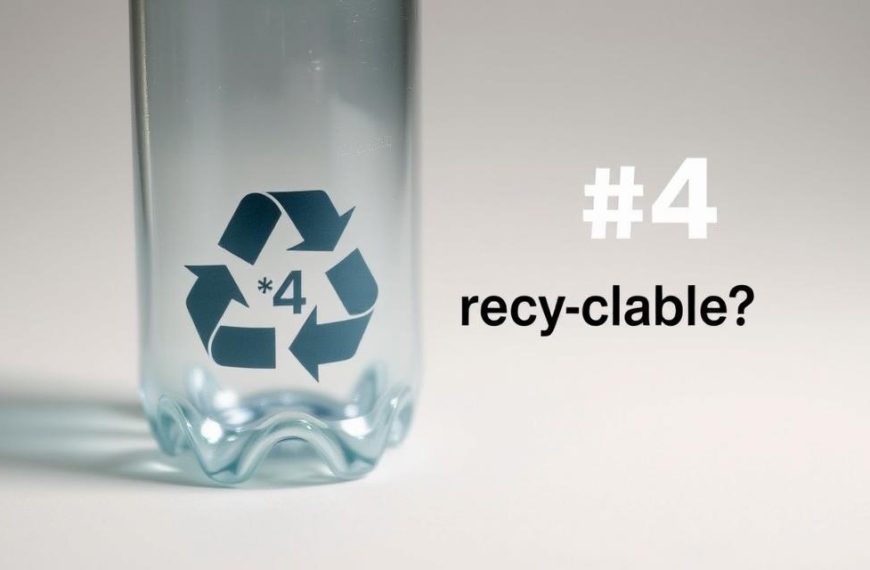Batteries Plus has become a national leader in battery recycling, with over 700 stores across the United States. Their commitment to sustainability is evident through partnerships and programs designed to make recycling accessible to everyone.
During Earth Month, Batteries Plus teamed up with Sinclair Broadcast Group to offer free household battery recycling. This initiative allowed consumers to recycle up to 5 pounds of batteries at no cost, encouraging eco-friendly practices.
Every year, over 3 billion batteries are discarded in landfills, posing significant environmental risks. Batteries Plus addresses this issue by recycling 50 million pounds of batteries annually, including over 1 million pounds of rechargeable and lithium batteries.
This effort not only benefits the environment but also highlights the company’s dual focus on consumer accessibility and corporate responsibility. Learn more about their impactful programs and how they’re making a difference here.
Introduction to Batteries Plus Recycling Services
With over three decades of experience, Batteries Plus has established itself as a trusted name in recycling services. The company operates more than 700 stores across the United States, making it a convenient option for both individuals and businesses.
Each year, Batteries Plus processes over 50 million pounds of materials, including lead-acid and lithium batteries. This effort significantly reduces waste and supports a healthier environment. Their EPA-compliant processes ensure safe and efficient handling of all recyclable items.
Recently, the U.S. Department of Energy awarded Batteries Plus a $7 million grant. This funding will expand their nationwide program and upgrade recycling technologies. “This grant allows us to enhance consumer incentives and improve our recycling infrastructure,” a company spokesperson noted.
Corporate partnerships, like the one with Sinclair Broadcast Group, further highlight their commitment to reducing battery waste. These collaborations aim to educate the public and promote sustainable practices. Batteries Plus also offers specialized services for commercial clients, ensuring a dual focus on consumer and business needs.
Does Batteries Plus Recycle Batteries for Free?
Batteries Plus offers eco-friendly solutions for battery disposal across the U.S. Their initiatives make it simple for individuals and businesses to participate in sustainable practices. From seasonal promotions to long-term programs, they provide accessible options for everyone.
Free Recycling Promotions
During Earth Month in April 2024, Batteries Plus partnered with Sinclair Broadcast Group to offer free household battery recycling. Customers could dispose of up to 5 pounds of batteries at no cost. This initiative encouraged communities to adopt greener habits.
Starting late 2024, a 3-year grant from the U.S. Department of Energy will remove consumer fees entirely. This program aims to expand recycling accessibility and upgrade infrastructure. “We’re committed to making recycling convenient and cost-effective,” a company representative stated.
Conditions and Limitations
While many recycling options are free, some restrictions apply. Single-use batteries have an 11-pound limit through Call2Recycle partners. Commercial accounts require separate agreements, and damaged or leaking batteries need special handling.
Always check with your local store for specific policies. These may vary based on battery type and quantity. Below is a summary of key details:
| Program | Details |
|---|---|
| Earth Month Promotion | Free recycling for up to 5 lbs of household batteries |
| DOE Grant Program | Fee-free recycling starting late 2024 |
| Limitations | 11 lbs max for single-use batteries |
| Exclusions | Damaged or leaking batteries require special handling |
Batteries Plus continues to lead in sustainability, offering programs that benefit both the environment and the community. Their efforts ensure that recycling remains accessible and impactful.
Types of Batteries Accepted for Recycling
Recycling batteries is a crucial step toward a sustainable future, and knowing which types are accepted is essential. Proper disposal ensures environmental safety and resource conservation. Below, we break down the categories of batteries that can be recycled, along with preparation tips and exclusions.
Household Batteries
Common household batteries include alkaline (AA, AAA, C, D, 9V), zinc-carbon, and button cells. These are widely used in everyday devices like remote controls, clocks, and toys. Proper recycling prevents harmful chemicals like mercury from contaminating the environment.
Rechargeable Batteries
Rechargeable batteries, such as lithium-ion (found in cell phones and laptops), nickel-cadmium (used in power tools), and nickel-metal hydride (common in cameras), are also accepted. These batteries contain valuable materials that can be recovered and reused, reducing the need for mining new resources.
Specialty Batteries
Specialty batteries, including lead-acid (used in cars and boats), lithium primary (found in medical devices), and silver oxide, require specific handling. These batteries often contain hazardous materials, making proper recycling critical for safety and environmental protection.
While most batteries are accepted, industrial or commercial EV batteries require special arrangements. Always check with your local store for specific policies. Below is a summary of accepted battery types and preparation tips:
| Battery Type | Examples | Preparation Tips |
|---|---|---|
| Household | Alkaline, zinc-carbon, button cells | Tape terminals, sort by chemistry |
| Rechargeable | Lithium-ion, nickel-cadmium, nickel-metal hydride | Use non-conductive containers |
| Specialty | Lead-acid, lithium primary, silver oxide | Handle with care, follow store guidelines |
By recycling these batteries responsibly, you contribute to a cleaner, healthier planet. Always ensure proper preparation and follow local guidelines for safe disposal.
The Battery Recycling Process at Batteries Plus
The recycling process at Batteries Plus is designed to handle a wide range of battery types efficiently and safely. This ensures that harmful chemicals are properly managed and valuable materials are recovered for reuse. The process is streamlined to minimize waste and maximize environmental benefits.
Collection and Sorting
When batteries are brought in, store associates first verify their type and safety. This step ensures that damaged or leaking items are handled appropriately. Next, an automated sorting system, funded by recent grants, categorizes batteries by their chemistry. This technology reduces processing time by 3-4 minutes per pound, making the process faster and more efficient.
Key steps in the collection and sorting process include:
- Verification of battery types and safety by store associates.
- Automated sorting using advanced, grant-funded workstations.
- Secure shipping to EPA-certified smelters and material recovery facilities.
Safe Disposal Methods
Once sorted, batteries are shipped to certified facilities for safe disposal. These facilities specialize in recovering valuable materials like lead and lithium. For example, lead recovery achieves over 98% efficiency in closed-loop systems, while lithium reclamation extracts critical minerals for reuse.
Batteries Plus adheres to strict environmental regulations, including RCRA, DOT, and state-specific guidelines. This ensures that the entire process is compliant and minimizes harm to the environment.
Here’s how safe disposal works:
- Lead-acid batteries are processed in closed-loop systems for maximum efficiency.
- Lithium-ion batteries undergo critical mineral extraction for reuse.
- All steps comply with RCRA, DOT, and state-specific regulations.
By following these methods, Batteries Plus ensures that battery recycling is both effective and environmentally responsible.
Environmental Impact of Battery Recycling
Proper battery recycling plays a vital role in protecting our planet and conserving valuable resources. By diverting hazardous items from landfills, we reduce contamination and prevent harmful chemicals like mercury and lead from seeping into the environment. This process also recovers essential materials, promoting sustainability and reducing the need for mining new resources.
Reducing Landfill Waste
When batteries end up in landfills, they pose significant risks. For example, a single car battery can contaminate up to 25,000 liters of water. Lithium-ion batteries, if not handled properly, are responsible for 65% of fires in waste facilities. “Responsible battery recycling keeps millions of pounds of critical, potentially harmful metals out of landfills,” according to experts.
Recycling prevents these hazards. For instance, lead-acid batteries are 99% reusable, reducing the need for new raw materials. This not only minimizes waste but also lowers the carbon footprint, as recycled lead uses 35% less energy than virgin lead.
Recovering Valuable Materials
Battery recycling also focuses on recovering valuable materials. From 100 pounds of alkaline batteries, 16 pounds of zinc can be extracted. This process conserves resources and reduces the environmental impact of mining. Additionally, recycling prevents over 50,000 tons of lead leakage annually, as reported by the EPA.
By recycling, we ensure that critical metals like lithium and nickel are reused in new products. This closed-loop system supports a circular economy, reducing the strain on natural resources and protecting the environment for future generations.
Conclusion
Joining the effort for a greener future has never been easier with accessible recycling solutions. Batteries Plus offers seasonal promotions and a forthcoming program funded by the DOE to make disposal cost-free. With 700+ locations nationwide, their services fit seamlessly into any schedule.
Find your nearest drop-off spot using their online store locator. Business clients can explore tailored services for bulk disposal needs.
Looking ahead, pilot initiatives for EV battery recycling will expand their impact. Remember: recycling just one item can power a TV remote for six months—proof that small acts protect our environment.

















